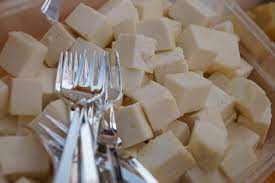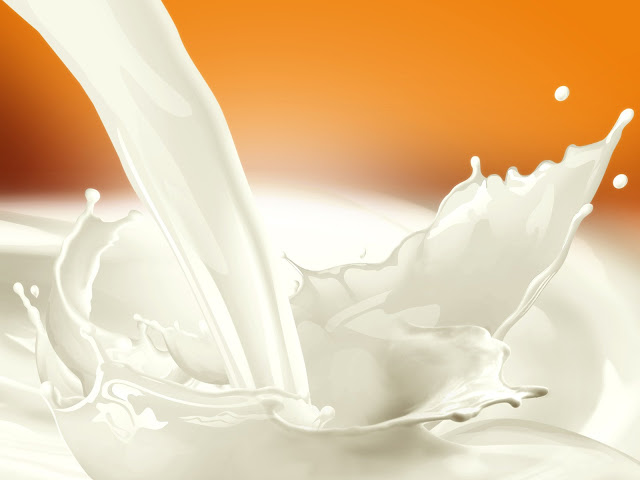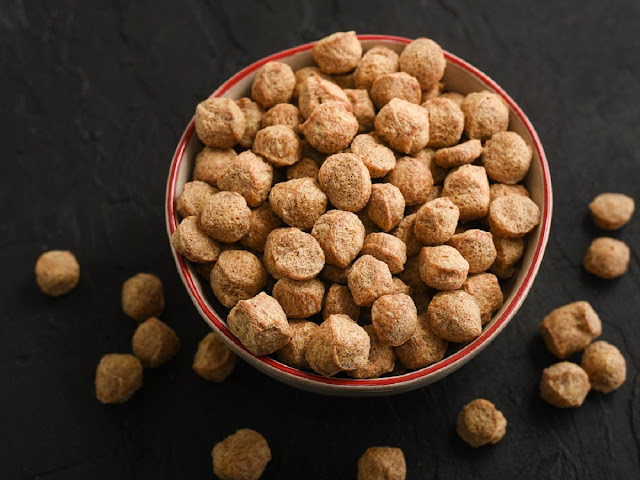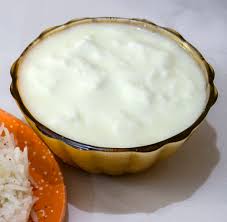paneer nutrition facts
A type of cheese that is made by curdling milk with an acid (usually lemon juice, vinegar, or yogurt), which creates a firm white mass that is sliced into cubes.
Paneer is made in India and Pakistan and can be served in many different styles including Indian curry dishes, pizzas, casseroles, salads, and soups. Paneer nutrition facts are very interesting.
Paneer contains high levels of protein and low levels of fat compared to other types of cheese. It also provides 35% of the daily recommended intake for calcium. However, it does contain high levels of sodium.
Paneer is a popular Indian food made from milk. It can be eaten cooked or raw, and it has high nutritional value.
Paneer contains 13% protein which makes it an excellent source of protein. It also contains calcium which is important for healthy bones, and it’s a good source of phosphorus and magnesium.
Paneer is a great way to incorporate dairy products into your diet as well as tasty food on its own.
This delicious dish can be served with rice, vegetables, tomato sauce, or chili-garlic paste.
Paneer is an Indian cheese that is very popular in India, Pakistan, and Bangladesh. Paneer is a fresh cheese made by curdling milk with lemon juice or other acids. It has a mild taste and can be used extensively in dishes like shahi paneer or raita.
Paneer contains high levels of protein making it beneficial for the development of muscles and bones.
It also contains good amounts of fat which make it rich in proteins and low in cholesterol. Here are some health benefits of paneer: - Boosts metabolism - Improves bone strength - Aids in weight loss/management - Increases muscle mass
Paneer has a creamy and somewhat spongy texture and a delicate flavor. It is often pressed with spices and spinach or scallions and is usually browned in butter until it is golden-brown on the outside.
Paneer can be eaten as it is, used as a condiment, or made into sauces. Paneer is low in calories and has little fat content, making it an excellent choice for those who are dieting. It's also low in cholesterol and sodium.
For those of you who are lactose intolerant, paneer may be eaten by those who have developed high levels of lactase enzymes over time due to regular consumption of dairy products like yogurt or cheese.
Here are some facts about pane
buffalo milk nutrition facts
Buffalo milk is a type of milk that comes from the buffalo. It is similar to cow milk, but healthier because it contains more vitamins.
The increased amount of vitamins in buffalo milk makes it suitable for people who are lactose-intolerant or allergic to cow milk protein.
Buffalo milk also contains fatty acids like CLA and Omega-3s, which are not found in cow
What are the health benefits of buffalo milk? The health benefits of buffalo milk are vast. Buffalo milk is high in calcium, which helps keep bones strong and even boosts bone density. It's also rich in vitamin A, which is good for the eyes and skin.
The types of fats found in buffalo milk can help lower cholesterol levels and decrease cardiovascular disease risk.
These are just a few of the nutritional benefits that make buffalo milk an excellent addition to your diet!
The milk produced by the female species of buffalo is known for its high nutritional value. This article explores the nutritional benefits of buffalo milk and how it compares to cow milk.
Milk is an important part of a healthy diet, but it can be difficult to tell which milk is best for you.
The nutritional content of milk varies depending on the type. For example, skim milk contains fatter than whole milk, and whole milk has more calcium than skim milk.
Milk also contains carbohydrates, protein, and vitamins depending on what you choose. The nutritional content of milk may vary depending on the type.
Whole milk has more calcium than skim, for example. We recommend low-fat dairy products as part of your healthy diet.
soya chunks nutrition facts
Soybeans are the most widely consumed legume in the world, with many soybean products being used worldwide.
Soybeans are high in protein, antioxidants, and fiber. They are also a good source of calcium, iron, magnesium, phosphorus, potassium, zinc, copper, manganese, and folate.
Soya chunks are a high-quality soy product that contains a high protein content. They are available from many different manufacturers and can be purchased from supermarkets, health food stores, Asian markets, and other specialty shops.
They can also be ordered online. These soy chunks are made by soaking soybeans until they form a dough, which is then steamed or baked to make a crunchy snack. Soya chunks contain many nutrients that contribute to good health.
Here is a list of the nutritional value of one serving of soya chunks: Calories: 143 Protein: 7g Fat: 9g Carbohydrate: 10g Iron: 2mg
Soya chunks are a product made from soybeans that are cooked, dried, and crushed into small, bite-sized pieces.
They are often eaten as an alternative to meat or as part of a veggie burger patty. Soya chunks are also used in sauces, pasta, soups, and curries.
curd nutrition facts
Curd may give you a sour taste. But it’s not just any old food that can make you feel that way. In fact, the curd is a good source of calcium and protein.
In addition to the benefits of calcium and protein, curd has been shown to have a positive impact on blood pressure and cholesterol levels in adults with high cholesterol.
Here are some other surprising facts about curd nutrition.
Dairy products, including yogurt, cheese, and milk, are a great way to get the calcium that your body needs to stay healthy. However, they can also contain high amounts of saturated fat.
The key is to be mindful of your diet's overall balance. Here are some ways you can enjoy dairy without feeling guilty.






